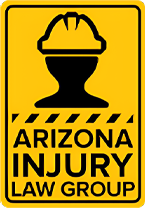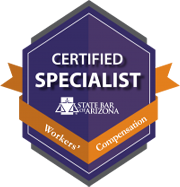Who Pays For Workers’ Compensation?

Workers’ compensation benefits are paid for by employers. However, workers’ compensation systems vary by state. Depending on the system that is in place, employees may receive workers’ compensation benefits from any of the following:
- The state government;
- An insurance company;
- The employer; or
- A third-party administrator hired by the employer.
Below is an overview of the three most common sources of workers’ compensation.
- Insurance Companies – A majority of states allow employers to purchase workers’ compensation insurance from private insurers, and many companies elect to do this. When an employer elects to purchase workers’ compensation insurance from a private insurer, employees of the company will receive their payments directly from the insurance company.
- State Programs – Employers in many states elect to obtain workers’ compensation insurance through state programs. These programs are typically run by a state’s department of labor or department of commerce. Typically, the employers that choose to obtain workers’ compensation through state programs are small businesses or employers in industries with a low incidence of workplace injuries. Employees whose employers utilize this system of workers’ compensation are paid by the state department that is responsible for administering the program. In such systems, the state functions like a private insurance company. Specifically, employers pay premiums to the state, and when a claim is made, the appropriate department verifies the benefits owed to the injured employee.
- Employer Self-Insurance – Many states allow employers to self-insure. When an employer self-insures, it effectively takes the place of the insurance company. However, most states that allow employers to do this require that the employer be relatively large. Or, in other words, the employer must demonstrate to the state that it possesses sufficient assets to cover anticipated workers’ compensation liability. A number of states also require such companies to submit to a high level of state oversight to ensure that appropriate procedures are in place and employees are fully compensated for their injuries. Also, as noted above, many self-insured employers hire a third-party administrator to assess and pay out workers’ compensation claims. Third party administrators perform a number of functions for employers, including:
- The administration of workers’ compensation claims;
- Claims processing;
- Claim management;
- The distribution of financial compensation to injured employees.
While it is imperative that all injured employees obtain legal counsel, it is particularly important for those employees who work for self-insured employers. The reason for this is that self-insured employers often have ample resources to dispute employee claims, and they are often more willing than other employers to do so since they face greater financial risk than those companies that are insured by other methods.
Arizona Worker’s Compensation Attorneys
Workplace injuries can be devastating, both physically and financially. Therefore, if you or a loved one have been injured on the job, it is highly recommended that you contact an experienced Arizona workers’ compensation attorney as soon as possible, as you may be entitled to compensation. For a free consultation, please contact Arizona Injury Law Group, Attorneys at Law, PLLC, at 602-346-9009.
Get Help Today
Call Immediately For A Free, No Obligation Consultation And Let Us Help You Put Your Life Back On Track. Let Us Help You
Regain Normalcy And Stability Again. We Want To Help You Get The Benefits You Need And Deserve!


